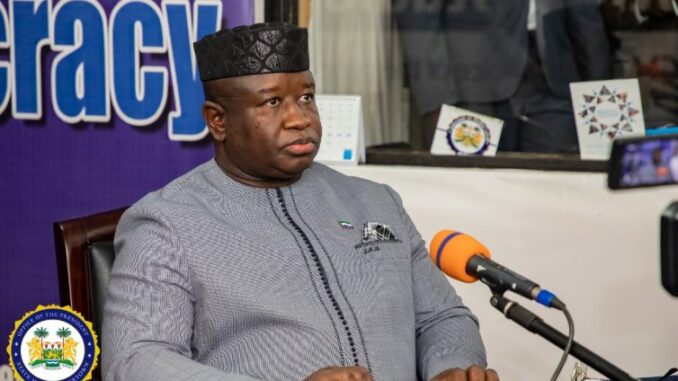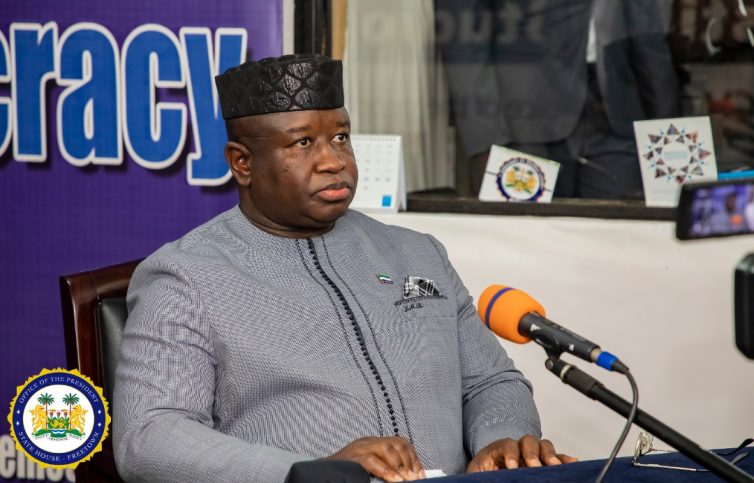
Inclusiveness Is At The Heart Of Our Major Governance Challenges
A Commentary By Ranger
From the tensions, confrontations and spate of politically induced violence that have taken place inside the House of Parliament between MPs of the ruling party and the opposition and outside in some parts of the country since this Government came to power in April 2018, it is very clear that inclusive political processes are crucial to sustaining peace and conflict prevention, as they contribute to remedying structural inequities and other root causes of conflict.

Political Scientists postulate that societies whose political institutions are more inclusive and participatory tend to be more peaceful and resilient, just as societies practicing exclusion tend to be more vulnerable to fragility and conflict.
This reality is underscored by the importance of “Inclusion” in the 2030 Agenda, including SDG16, SDG10 and SDG5.
Moving forward, many have said that it is the onus of the ruling party to support all political actors, agents and institutions of governance across a variety of contexts to enhance inclusive political processes and institutions. For example:
• Civic engagement, focused on both strengthening civil society capacities and expanding and protecting spaces for citizen participation in political and public life, with a special focus on groups experiencing discrimination and marginalization, including persons with disabilities;
• Constitutional reform processes, with a focus on supporting dialogue and mediation, outreach, public education, and institutional development of constitution-making bodies;
• Respect for the electoral process to enhance the credibility, transparency, effectiveness and sustainability of electoral institutions and processes;
• Parliamentary development, with a focus on building the capacities of members of Parliament and parliamentary committees, to discharge their constitutional, law-making, oversight and representation mandates in support of SDG achievement;
• The advancement of women’s equal participation and decision-making in political processes and institutions.
Without a doubt, inclusive growth is crucial not only for a fairer society but also for a stronger economy. Income gaps between rich and the poor have widened, and these inequalities undermine economic growth and strain the relationship between Government and citizens.
Government (central and local) should search for new ways to improve living standards, while sharing the benefits of growth more evenly across all groups in society.
In responding to the challenge of inclusive growth, the public sector has an important role to play, with respect to the inclusiveness of the public sector itself, the inclusiveness of policy-making processes, and the inclusiveness of the outcomes that Governments seek to promote.
First, the public sector, a major employer in the economy, must be representative of the society it serves.
It should be equitable by aspiring to being an “inclusive employer”. Fewer women hold high positions.
Second, promoting inclusive growth requires strong, inclusive processes and institutions to counteract the forces that produce inequality.
In pursuing inclusive public policies and practices, efficiency and equity are not viewed as mutually exclusive; rather, inclusiveness becomes a key dimension of effectiveness.
In an inclusive approach to public policies, equity and fairness considerations are introduced by looking at the impact of various policy options on different groups in society.
Inclusive Government processes also allow civil society and the wider public to be involved in policy making, regulation and service delivery.
By gathering more input from citizens about their needs and the impact of policies on them, open Government makes public policies more effective and public services more user friendly and user driven.
Finally, and perhaps most importantly, the test of an effective policy of inclusive growth is whether public policies achieve their wider societal goals, from increasing access to education and educational attainment across society to reducing disparities in life expectancy and other key health indicators and lowering income inequality through better-targeted tax policies.
Inclusiveness – reflected in access (financial and geographical) to public services such as education, health care and justice – in turn shapes the growth potential of economies and the level of societal well-being.
The hypothesis is that a more inclusive approach to policy making will play a key role in achieving inclusive growth and that inclusive growth, in turn, represents a more sustainable economic model for our society.



